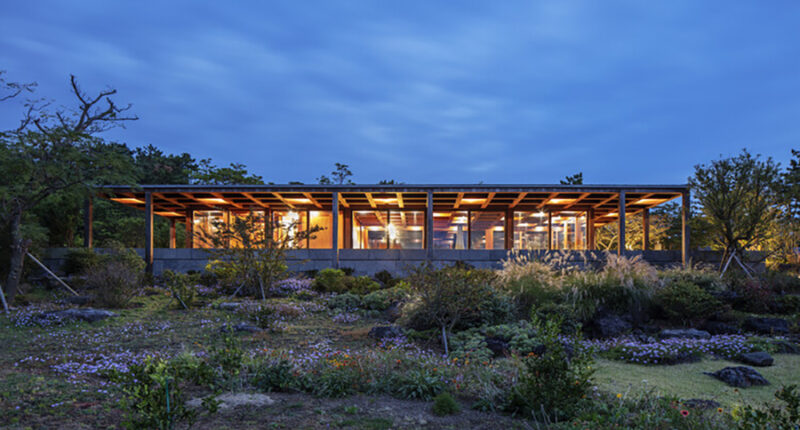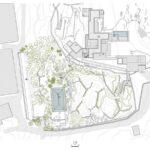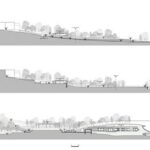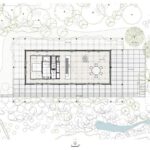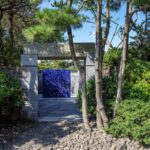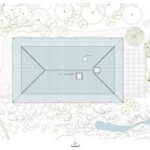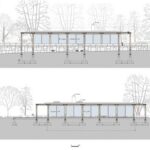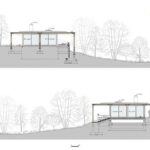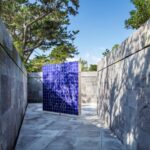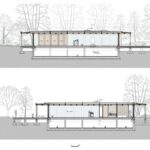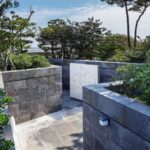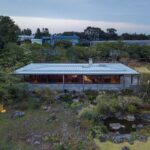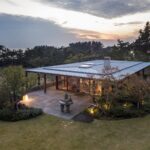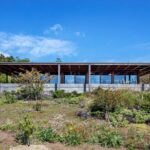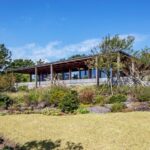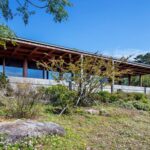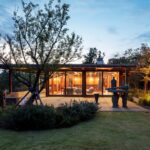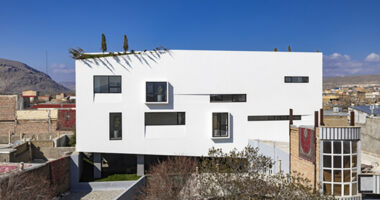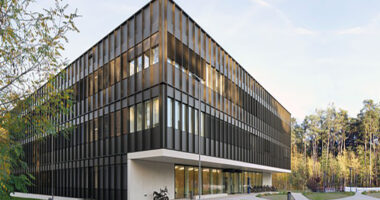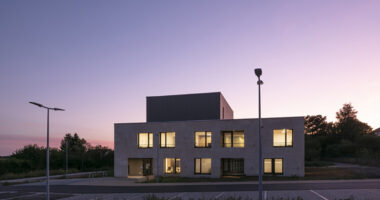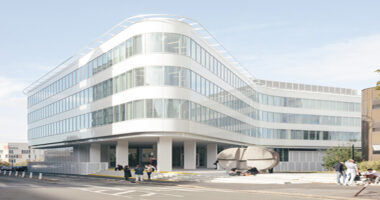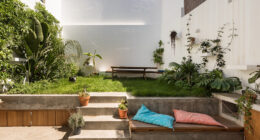Introduction
In 2018, architects Carlos Castanheira, Jong Kyu Kim, and Álvaro Siza Vieira unveiled the Jeju Island Tea House in South Korea, a serene retreat nestled amongst the idyllic landscapes of Jeju. This architectural marvel emerged as an extension of the existing Jeju House, serving as a sanctuary where guests could be welcomed without intruding on the privacy of the main residence.

Design Philosophy
The challenge of seamlessly integrating the Tea House with the surrounding gardens and landscape prompted a thoughtful approach to design. Drawing inspiration from traditional Korean architecture, the architects opted for a harmonious blend of materials and spatial configurations that honored both cultural heritage and modern sensibilities.
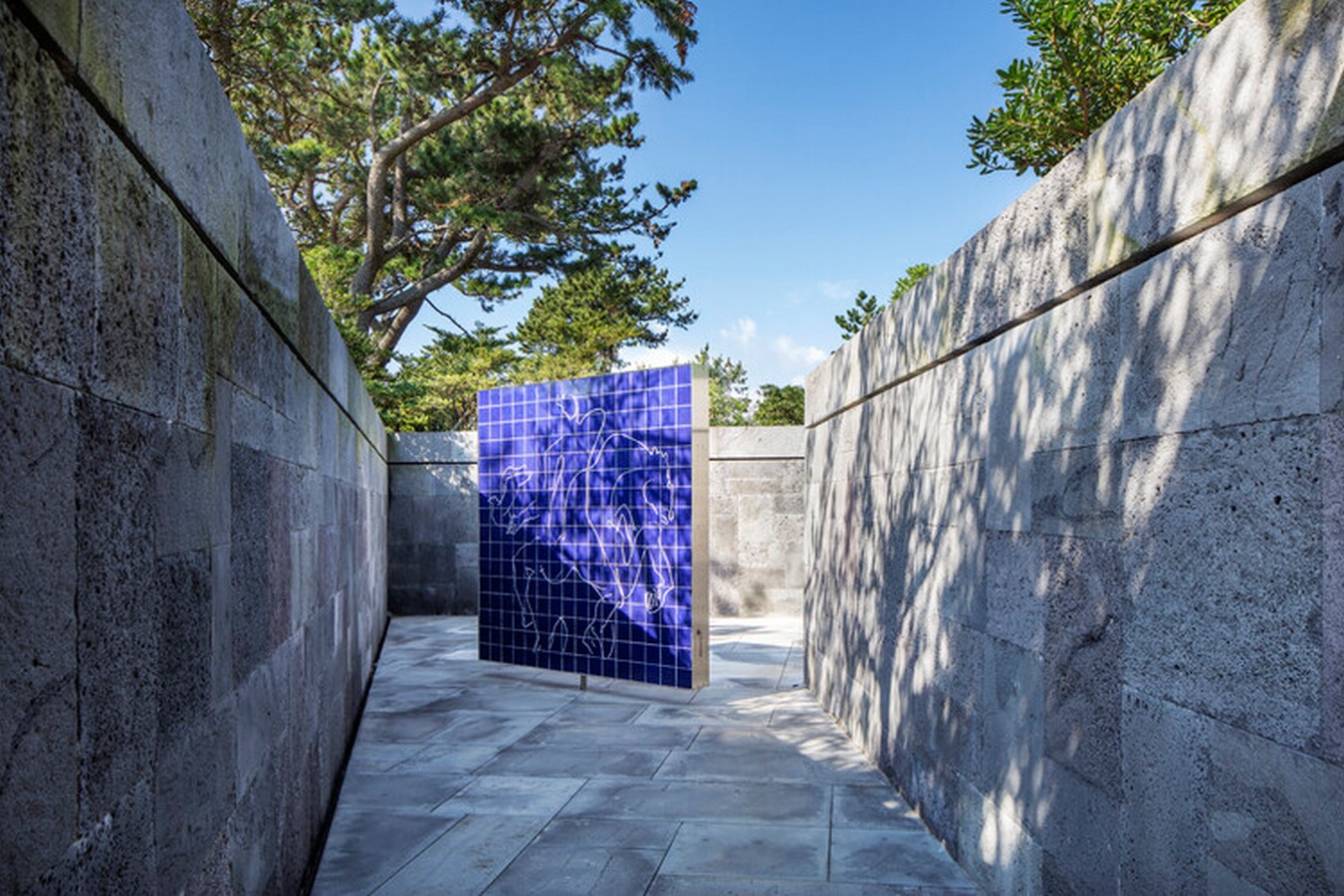
Architectural Elements
The Tea House, situated at the highest point of the site, offers panoramic views of the sea and horizon, creating a serene atmosphere for contemplation and relaxation. Crafted from volcanic stone, timber, and copper, the structure exudes elegance and timelessness. Sliding screens allow for flexible spatial configurations, enabling seamless transitions between indoor and outdoor spaces.
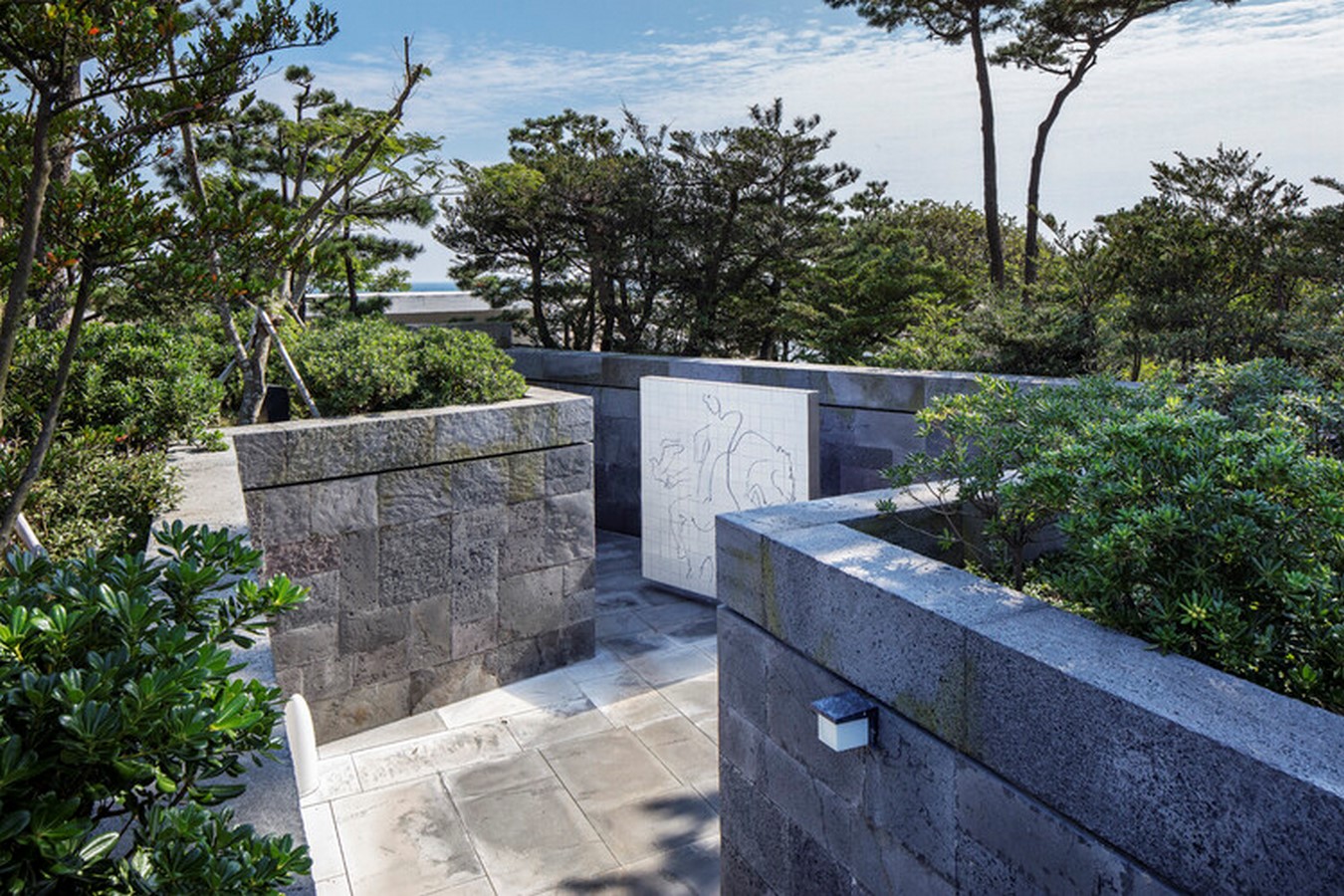
Construction Process
To realize their vision, the architects collaborated with skilled craftsmen in Portugal to fabricate the timber components of the Tea House. Prefabricated elements were then shipped to Korea for assembly on-site, ensuring precision and efficiency in construction. Despite linguistic and logistical challenges, the project proceeded smoothly, showcasing the seamless synergy between design intent and execution.
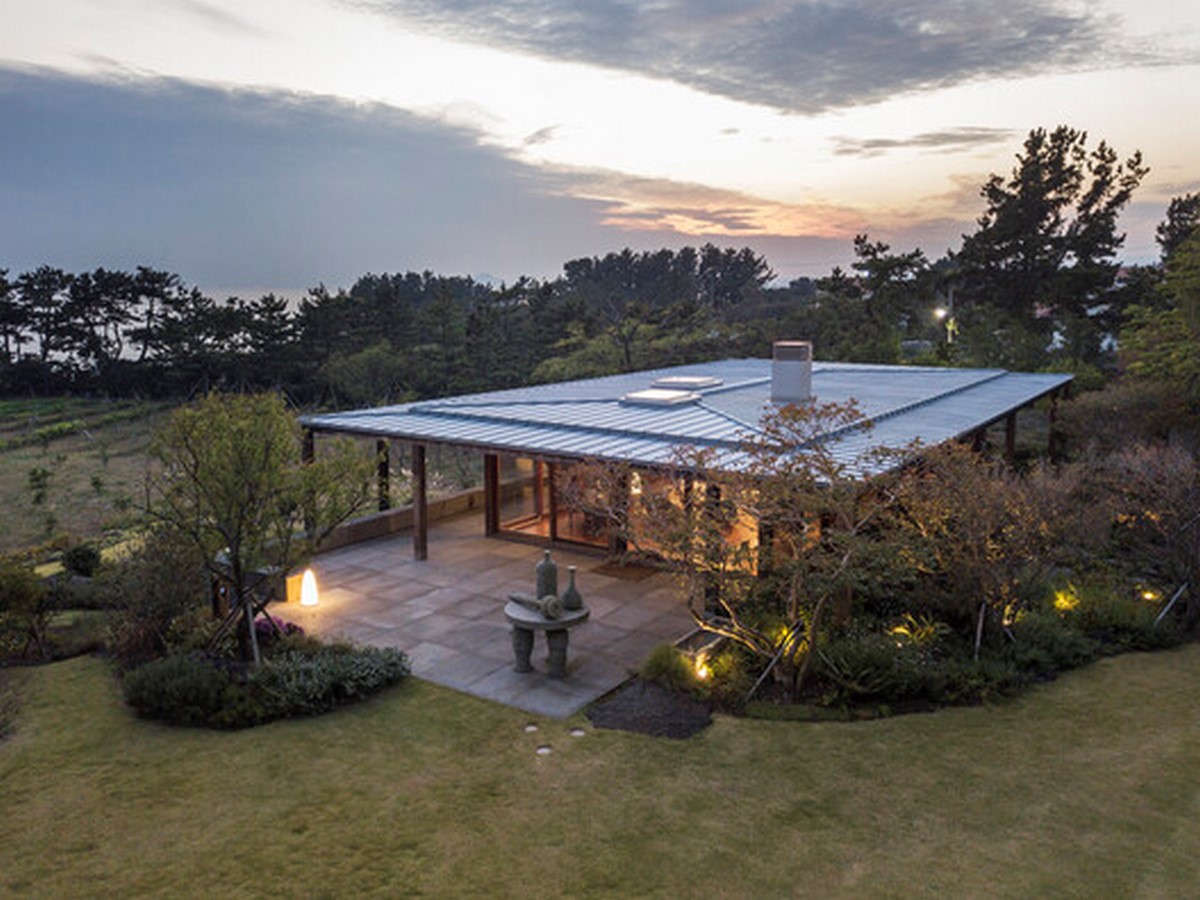
Integration with Nature
The Tea House’s design harmonizes with the surrounding landscape, with lush gardens designed by Seo-Ahn STL Total Landscape complementing the architectural elegance. A natural flow between the main residence and the Tea House is facilitated by discreet pathways and connections, evoking a sense of timeless serenity and tranquility.
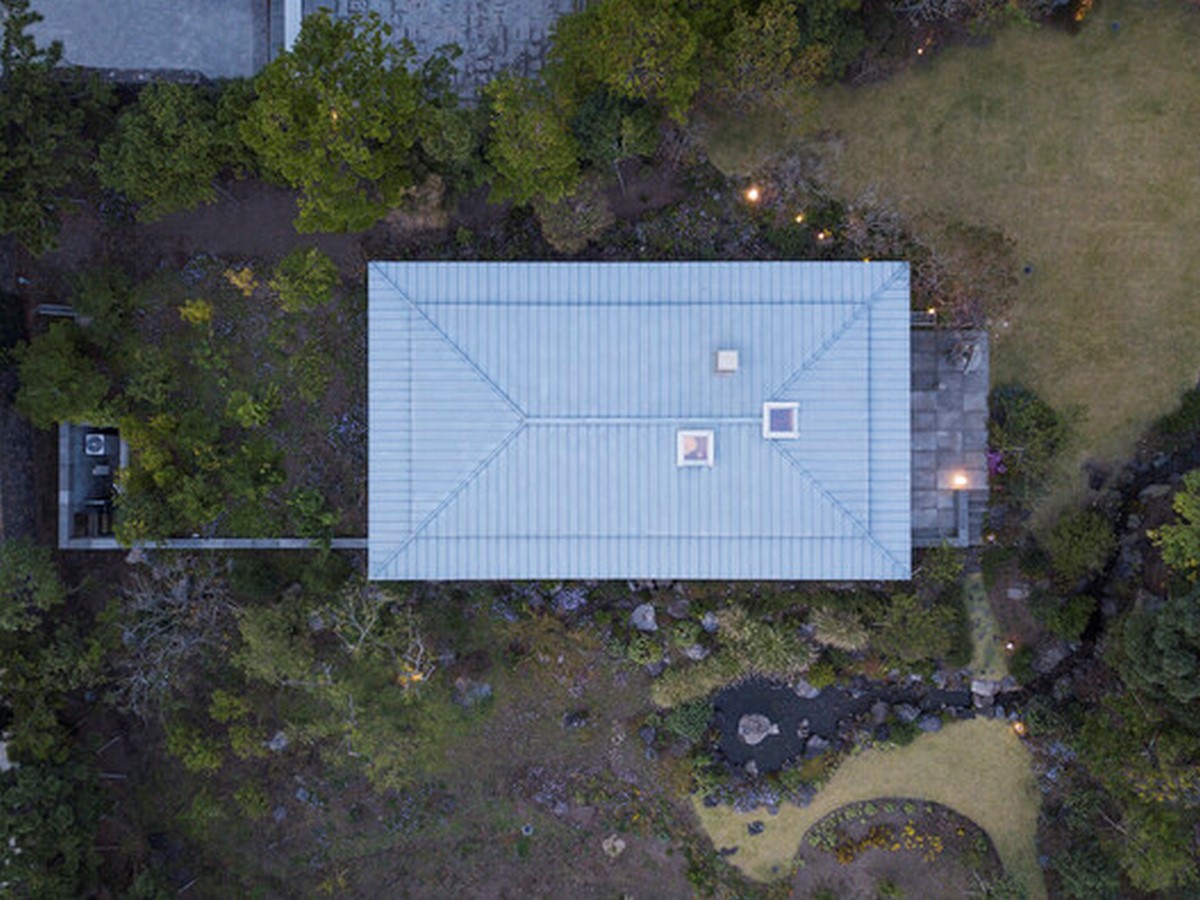
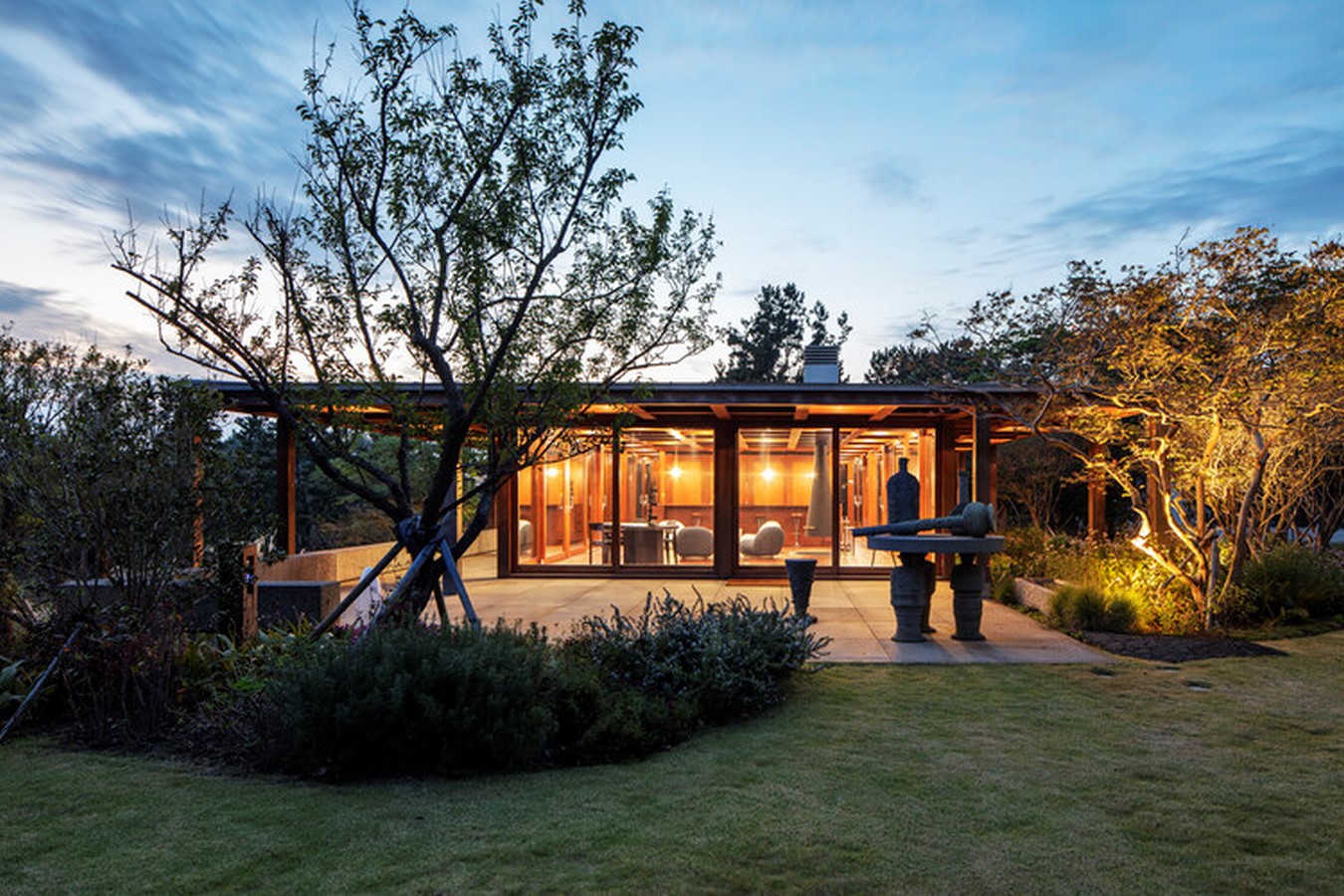
Conclusion
The Jeju Island Tea House stands as a testament to the architects’ unwavering commitment to design excellence and cultural sensitivity. By seamlessly integrating traditional elements with modern design principles, the Tea House transcends its function as a mere architectural structure, emerging as a timeless sanctuary where guests can immerse themselves in the beauty of nature and find solace amidst the chaos of the modern world.
